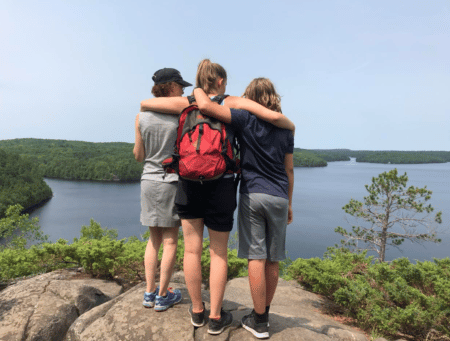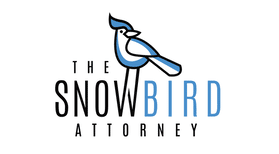
Who knew how little control we really have of our lives? I had so many plans for myself as a young 25 year old. I was working on my master’s degree in computer science and planning to work overseas in Asia. I loved to travel and learn about other cultures. I had recently returned from a great adventure in London England working at a pub, living with friends and touring the UK. I was doing so well—until the crash. A life-changing crash.
It really was not much of a crash: car versus pedestrian has a predictable outcome. I was celebrating my birthday with a few friends and it was time to go home. We needed to cross a busy Richmond Street in London Ontario and a nearby crosswalk was our ticket to the other side. We pressed the button, waited for traffic to stop and I led the way across the street. Unfortunately, a young woman on her way to see her boyfriend did not see the lit crosswalk or the stopped cars and I could not see her so we collided.
The Neurosurgeon Had No Idea How I Survived
Her bumper hit my lower left leg, breaking it badly and propelling me upward, my right torso hit her windshield, breaking most of my right ribs and four of my vertebrae, then I was airborne for about twenty feet, landing on my head. Of course, I have no memory of the incident. No memory of the ambulance, the CT scan, or the emergency brain surgery. I do remember being on a ventilator and family visiting me in intensive care. I remember that after a few days I had surgery to repair my leg.
I will never forget going to visit the neurosurgeon for a follow-up appointment several months after the crash. I was very emotional: I thanked him for saving my life, and expressed the gratitude of my family. “Don’t thank me,” he said, “I have no idea how you survived. Half a dozen times all we could do was sit you up and pray. You are my miracle boy! Anyone who lived through that is alive for a reason.”
Rehabilitation was easy for my physical injuries compared to rehabilitation for my brain injury. My body took several years of physiotherapy, two more surgeries on my leg and one surgery to repair my back, fusing two levels of vertebrae together. Like I said, easy. Brain injury on the other hand is completely different. Understanding the injury, getting quality rehabilitation, attempting to return to work or school are all major issues that involve the risk of loss of self. At the same time watching old friends fade away into their ever-evolving lives, graduating, getting jobs and worse, moving away, begins the journey of isolation.
Feelings of Disconnection and Isolation
As the years went by, I became disconnected from society due to this life-changing crash. I was never able to return to school or work as the basic necessities of living were more than enough for me to deal with. Navigating a grocery store was now a major challenge. I never was able to feel part of society again. Being a young man that was unemployable did not gain me any friends. Struggling in busy environments and needing to avoid malls, outdoor festivals, and large groups was also very isolating. Having no goals other than basic survival was soul crushing.
Fortunately, somehow, I did manage to get married and father two children. My focus became being a stay- at- home Dad. This new role didn’t solve my isolation issues as Dads were not welcome at parenting courses, baby groups, moms’ clubs, or playground socials. But I had a role, and based on my experience with brain injury, a goal: understand my children’s truth; accept them; and love them for who they are.
My big life-changing crash was twenty-five years ago. Over that time, I have spoken at conferences, helped start an ABI mentorship program, chaired three brain injury survivor conferences, and most importantly raised two beautiful children. What I learned from my brain injury experience has allowed me to give my kids a rare gift: a father that can see them, be present with them, and always love them. I get a lot of compliments about my confident, self-motivated, well balanced, teenagers that know how to cook, change oil on a tractor, and tell the difference between Scots Pine and Red Pine. I have teenagers that will hug me and hold my hand. “How did you do it Kevin?”
I Can Still Love
I wonder about why I was gifted with more life to live. What purpose could I possibly serve? I am disabled, unemployable and a social reject since this life-changing crash. After 25 years of experience, I can tell you, my friends, what I can do: I can still love. I have loved my two kids; I have loved the kids I volunteered with as a coach; I have loved the kids in the outdoor programs I supported; I have loved the kids at the youth center I helped in; and I have loved writing this article with the hope that I can be of some service to another human being in need.
I think all crash victims have the opportunity to be role models in our communities. To be people that have been through so much yet can still find some small way to lovingly contribute to the larger group. It is not the task people value us for but how we do our task: how we can still smile; how we share our gratitude for being alive; and how we have compassion for people’s experiences. Our communities are deeply suffering and maybe we have the cure.
Peace be with you all.
Submitted by Kevin MacGregor
Kevin is a member of the Crash Support Network and we are so thankful that he shared his story with us. We look forward to keeping in touch with Kevin throughout his continued recovery.
This article is also featured in our 2022 Summer Issue of Sharing our Recovery
The Crash Support Network is a unique website consisting of an online support group, a Crash Survivor Blog written by a survivor, our Sharing Our Recovery Newsletter, informative articles and a Virtual Crash Memorial. Our website is based on relationship-building and puts the needs of survivors first by creating a helpful resource for victims and survivors of motor vehicle crashes.



